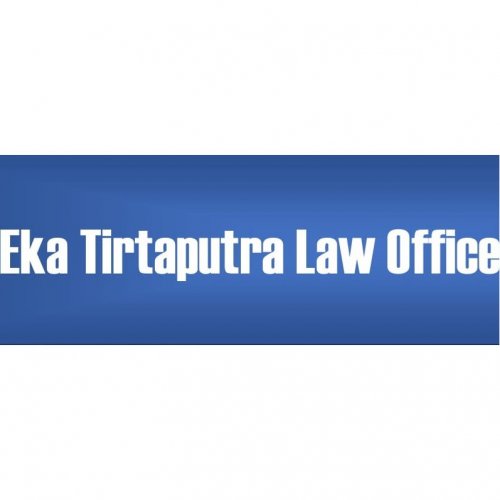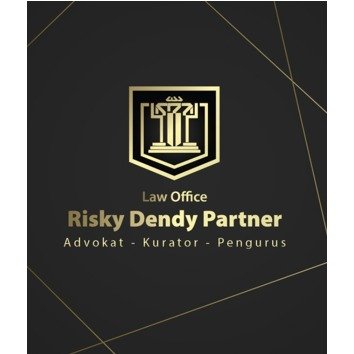What are the legal steps to engage in lobbying with Indonesian ministries for a regulatory change?
Lawyer Answers

TNC & FRIENDS LAW FIRM
We need to understand more about your business and the issues that require you to lobby the relevant ministries. Thank you.

MA&P Lawyers

MA&P Lawyers

Law Offices Syapri Chan & Partners
Selling shares to a private equity (PE) firm in Indonesia involves a structured process and is subject to applicable legal regulations, particularly the Limited Liability Company Law (UU PT) and the Financial Services Authority (OJK) regulations if the target company is a public company.
Process of Selling Shares to a Private Equity Firm
The following are the general steps in selling shares to a private equity firm in Indonesia:
Internal Preparation (Seller):
Objective Evaluation: Determine the reason for the sale (e.g., business expansion, capital redemption) and the percentage of shares you wish to sell.
Company Valuation: Conduct an independent assessment of the company's value. PE firms typically focus on potential future cash flows (the next 3-5 years) in their valuations.
Document Preparation: Prepare clear and accurate financial statements, a well-defined business strategy, and financial projections.
Search and Pitch to PE Firms:
Identify PE firms with a suitable industry focus and investment criteria.
Conduct a compelling pitch or presentation to promote your business to potential investors.
Negotiation and Due Diligence:
If interested, the PE firm will conduct due diligence (legal, financial, operational) to verify the information provided.
Negotiate the terms of the transaction, including the purchase price, payment terms, and closing conditions. The initial agreement is outlined in an Equity Purchase Agreement (EPA).
Legal and Regulatory Compliance:
Preemptive Rights: Under the Limited Liability Company Law, shares to be transferred must first be offered to other shareholders within a maximum of 30 days. If there is no taker, the shares can be transferred to a third party (the PE firm).
GMS Approval: Share transfers, especially if they impact the company's ownership or control structure, require approval from the General Meeting of Shareholders (GMS).
Completion of the Transaction by a PE firm may require notification or approval from relevant agencies, such as the Financial Services Authority (OJK).
Transaction Completion (Closing):
Notarial Deed: A valid share transfer must be formalized through a notarial deed, especially if it is accompanied by a change in the shareholder structure.
Recording: The Board of Directors is required to record the transfer of rights in the shareholder register and notify the Minister of Law and Human Rights of the change within 30 days of the registration.
OJK Reporting: If the target company is a public company, changes in share ownership must be reported to the OJK.
Important Considerations
PE firms typically target established companies and acquire a larger percentage of shares (often more than 50%) with the goal of increasing the company's value before ultimately selling (exiting) within a specified period.
It is important to engage legal and financial consultants experienced in private equity transactions in Indonesia to ensure all legal and tax procedures are met.
The time required to sell shares to a private equity firm in Indonesia varies widely, depending on the complexity of the transaction and the preparedness of the target company. In general, this process can take between 3 and 9 months, or even longer.
The following is a breakdown of the estimated timeframe for each stage:
Process Stage Estimated Time Description
Internal Preparation & Valuation 1 - 2 months Prepare comprehensive financial, legal, and operational data.
Search & Offering 1-2 months: Finding the right PE and conducting an initial presentation.
Due Diligence 1-3 months: The most critical stage where the PE verifies all information.
Negotiation & Signing of the EPA 1 month: Negotiating the final terms.
Legal Compliance & Approval 1-2 months: Holding the GMS, offering to existing shareholders (preemptive rights), and notification to the government/OJK.
Transaction Closing 1 week-1 month: Signing of the sale and purchase deed at the notary and administrative recording.
Factors Affecting Time
Several key factors can speed up or slow down this process:
Target Company Readiness: If your company has regularly audited financial statements, complete legal documentation, and a well-organized organizational structure, the due diligence process will be much faster.
Legal & Industry Complexity: Acquisitions in highly regulated industries (e.g., banking, telecommunications) may require regulatory approval (such as the Financial Services Authority or the Financial Services Commission), which can significantly increase the timeframe.
Transaction Scale: Transactions worth billions or trillions of rupiah generally require longer, in-depth negotiations.
Preemptive Rights Process: Under the Limited Liability Company Law, existing shareholders must be given 30 calendar days to exercise their rights. This is the minimum period that must be adhered to.
Intense Negotiations: Differing views on valuation (price) or other terms of the agreement can significantly prolong the negotiation phase.
If you wish to hire us as an attorney, our fee is approximately $500 per hour.

mohammad mehdi ghanbari
Navigating Lobbying in Indonesia
Engaging with Indonesian ministries for regulatory change is possible, but it's crucial to navigate the legal landscape carefully to ensure compliance. Lobbying is legal in Indonesia, provided it adheres to the country's laws, which are primarily focused on anti-corruption and transparency.
Permitted Activities and Restrictions
Lobbying in Indonesia involves engaging with government officials and institutions to influence public policy, regulations, or legislation. This can include direct lobbying with legislators, their staff, and executive branch officials to advocate for or against specific regulations. However, these activities are subject to strict ethical and transparency restrictions. The primary legal framework to be aware of is the Anti-Corruption Law (Law No. 31 of 1999 as amended by Law No. 20 of 2001).
Registration and Disclosure
Indonesia does not have a formal lobbyist registration system. However, there is a strong emphasis on public disclosure to prevent corruption. While not consistently enforced, the Public Information Disclosure Act of 2010 is a key piece of legislation that allows for public oversight of lobbying activities. Businesses, industry groups, and non-governmental organizations commonly engage in lobbying, and while there isn't a single governing body, multiple government agencies, particularly those focused on anti-corruption like the Corruption Eradication Commission (KPK), are involved in oversight.
Record-Keeping and Compliance
Given the emphasis on transparency and anti-corruption, it is essential to maintain meticulous records of all lobbying activities. This includes details of meetings with government officials, the nature of the discussions, and any expenses incurred. These records are crucial for demonstrating compliance with anti-corruption laws and transparency requirements. Penalties for non-compliance can be severe, including imprisonment and significant fines.
The Role of Legal Representation
Given the complexity of the regulatory environment and the severe penalties for non-compliance, engaging a lawyer with expertise in Indonesian government relations and lobbying is highly recommended. A lawyer can help ensure compliance with all legal requirements, assist in drafting communications with government officials, and provide strategic advice on how to engage with various governmental bodies effectively.
I understand you are looking for guidance on this matter. I am a consultant with experience in this area and can provide you with a more detailed, text-based consultation via WhatsApp for a reasonable fee.

Eka Tirtaputra Law Office
We refer to your previous question and for your information lobbying practice in Indonesia is uncommon and is not known. If you want to voice your opinion about future regulation the government and parliament are open for public consultation and they usually invite association of businessperson or association of profession to give practice insight. To give your concern to be heard you have to join this association since it will be invited (not always) but at least you have opportunity to raise your concern.
But don't be surprised or upset since there is chance that even your concern has been heard whether in oral or written the regulation draft that being considered is not contain your opinion since the government and parliament have reached consent even before public hearing is conducted and it's common practice and fact in Indonesia legislative drafting process.
If the regulation which has not contained your and/or your association opinion has passed the parliament and has been signed to become a law then you have to accept and peruse it in order for you to know your rights, obligations and kind of compliance that you have to fulfill to authority while in the same time you're running your business.
We hope our answer can satisfy your question and in case you have further question, please feel free to contact us.
For your kind attention and cooperation, we say thank you.
Best regards,
Eka Tirtaputra Law Office
Jl. Trikora Raya No. 90 C, RT/RW 03/09
Gedong, Pasar Rebo, Jakarta Timur 13760 – Indonesia

Eka Tirtaputra Law Office
We refer to your previous question and for your information lobbying practice in Indonesia is uncommon and is not known. If you want to voice your opinion about future regulation the government and parliament are open for public consultation and they usually invite association of businessperson or association of profession to give practice insight. To give your concern to be heard you have to join this association since it will be invited (not always) but at least you have opportunity to raise your concern.
But don't be surprised or upset since there is chance that even your concern has been heard whether in oral or written the regulation draft that being considered is not contain your opinion since the government and parliament have reached consent even before public hearing is conducted and it's common practice and fact in Indonesia legislative drafting process.
If the regulation which has not contained your and/or your association opinion has passed the parliament and has been signed to become a law then you have to accept and peruse it in order for you to know your rights, obligations and kind of compliance that you have to fulfill to authority while in the same time you're running your business.
We hope our answer can satisfy your question and in case you have further question, please feel free to contact us.
For your kind attention and cooperation, we say thank you.
Best regards,
Eka Tirtaputra Law Office
Jl. Trikora Raya No. 90 C, RT/RW 03/09
Gedong, Pasar Rebo, Jakarta Timur 13760 – Indonesia

Eka Tirtaputra Law Office
We refer to your previous question and for your information lobbying practice in Indonesia is uncommon and is not known. If you want to voice your opinion about future regulation the government and parliament are open for public consultation and they usually invite association of businessperson or association of profession to give practice insight. To give your concern to be heard you have to join this association since it will be invited (not always) but at least you have opportunity to raise your concern.
But don't be surprised or upset since there is chance that even your concern has been heard whether in oral or written the regulation draft that being considered is not contain your opinion since the government and parliament have reached consent even before public hearing is conducted and it's common practice and fact in Indonesia legislative drafting process.
If the regulation which has not contained your and/or your association opinion has passed the parliament and has been signed to become a law then you have to accept and peruse it in order for you to know your rights, obligations and kind of compliance that you have to fulfill to authority while in the same time you're running your business.
We hope our answer can satisfy your question and in case you have further question, please feel free to contact us.
For your kind attention and cooperation, we say thank you.
Best regards,
Eka Tirtaputra Law Office
Jl. Trikora Raya No. 90 C, RT/RW 03/09
Gedong, Pasar Rebo, Jakarta Timur 13760 – Indonesia

Law Office Risky Dendy Partner Advocate - Receiver & Administrator For Bankruptcy
Free • Anonymous • Expert Lawyers
Need Personal Legal Help?
Connect with experienced lawyers in your area for personalized advice on your specific situation.
No obligation to hire. 100% free service.
Related Legal Experts
Get personalized help from lawyers specializing in this area



All lawyers are verified, licensed professionals with proven track records


